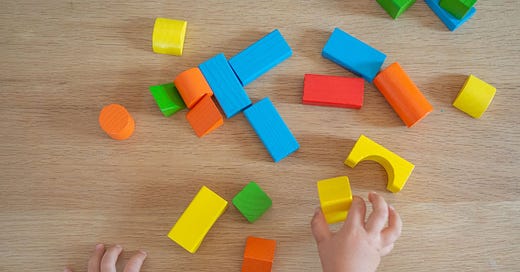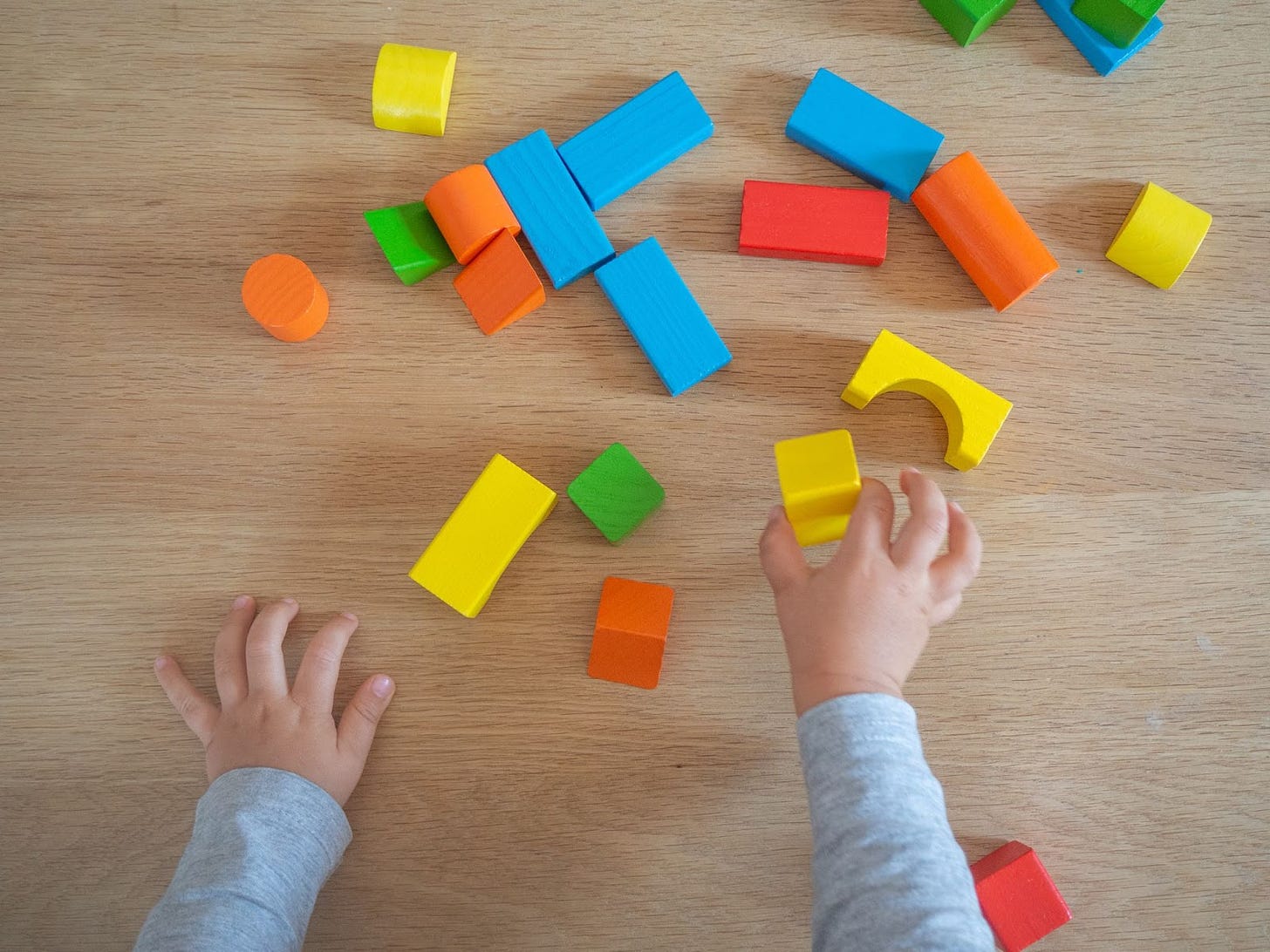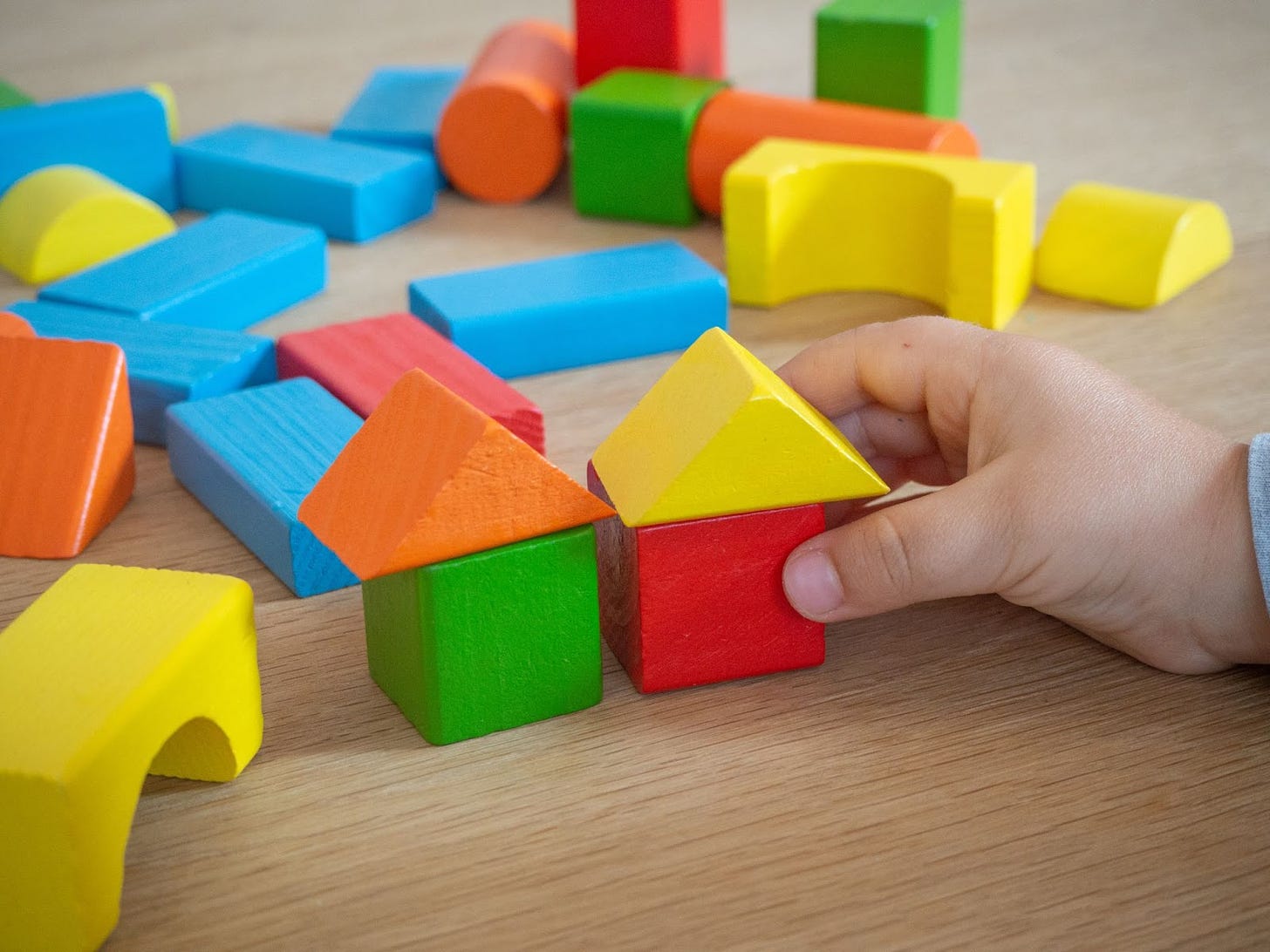I sat down to write today’s newsletter and ... promptly got distracted.
Instead of writing, I decided to look up a nearby house for sale on Zillow. Not surprisingly, it’s out of our price range. I then searched for homes within our budget. Not much available, but—hey, that place is pretty cute!
Suddenly, I remembered that a friend messaged me earlier. I shot a quick message back, caught up on group texts, then returned to my housing search, which seemed very important despite the fact that Billy and I aren’t actively looking for a place at the moment. I clicked through listing after listing and wondered if I correctly calculated how much we could afford. More tabs opened: I checked my bank accounts, my investments, and a mortgage calculator. Is the housing market finally slowing down? I opened another tab to look for answers.
Eventually, thinking about houses I can’t afford depressed me, so I went in search of a quick dopamine hit. To social media!
Has anyone tagged me on Twitter? Nope. A post about the Surfside condo collapse caught my eye. I paused. I scrolled a bit, then looked away. I opened Instagram. A new follower! I wonder how that person found me? I sent a couple obligatory heart-eyes emoji reactions to friends’ Stories. I popped over to Facebook. Ah, more random notifications for things I don’t care about. I scanned through posts in the groups I follow, making sure I didn’t miss anything important.
I considered that I should be writing. I checked my email instead.
There’s nothing new, but plenty of old messages I don’t want to deal with. I closed a few tabs from earlier. Refreshed a couple others. Checked my Substack subscriber count. Finally, I landed back in the Google Doc where I’m writing this post.
I have officially lost 45 minutes to a whole lot of nothing, and I don’t feel great about it.
In Bo Burnham’s latest comedy special, Inside, he sings a carnival-inspired song called, “Welcome to the Internet,” which is about the infinite nature of cyberspace. The song picks up speed as Burnham lists a dizzying array of things you can find online, everything from “a tip for straining pasta” and “a nine-year-old who died,” to “a healthy breakfast option” and “how you can build a bomb.”
“Could I interest you in everything, all of the time?” Burnham asks in the chorus. “A little bit of everything / All of the time / Apathy's a tragedy and boredom is a crime / Anything and everything / All of the time.”
It’s an amazingly catchy tune, one that plays in my head regularly. Even when I am mindlessly surfing the internet, just like I did before finally writing this post.
This is going to seem like a big jump, but bear with me.
This past weekend, my mom and I faced a classic parent-grandparent conflict: She ordered an unexpected toy for my daughter. I got frustrated because I didn’t think we needed more stuff! Eventually, we agreed that she overstepped her grandma boundaries and that she should check with Billy and me first before buying additional gifts.
This was an easy conflict to work through, but I know the fight against more stuff will be an increasingly difficult one in the years to come. For now, while our daughter is still a baby, Billy and I have control over how many toys we bring into our house. We’re trying to keep that number limited and create an expectation of a few, carefully selected toys from the start.
Our approach isn’t mean or random. Researchers have found that the fewer toys a child has, the longer they tend to play. A team at the University of Toledo discovered that toddlers with access to fewer toys demonstrated “higher quality play,” meaning they stuck with that toy for longer and used it in a variety of creative ways.
In Germany, this idea has gone even further. Some day care centers, or kitas, experiment with “toy-free kindergarten,” removing all toys from the classroom for three months at a time. The approach might sound extreme, but it’s effective. Independent studies have found that children who participated in toy-free kindergarten demonstrated increased social interaction, communication skills, empathy, and creativity. It’s based on the idea that habit-forming behaviors start in childhood and used in some kitas as prevention for later-life addiction (like, say, constant internet surfing … can you see where I’m going with this?).
A lack of toys—or no toys at all—doesn’t mean a lack of play. As writer Sara Zaske observed, children in toy-free classrooms wind up role-playing and participating in imaginative scenarios. “I saw a lot of this kind of play as first my daughter and then my son went through toy-free time at our kita,” Zaske wrote. “I came in one day to see the children playing ‘train’ using a line of chairs. Another time, they built a huge blanket fort and were crawling around pretending to be wild animals.”
The idea of limiting toys in our house is appealing, and not just because I greatly appreciate a clutter-free home. I remember what it was like as a child to be surrounded by toys and still feel desperately bored. I also remember, with much greater fondness, the games my brother and I would invent out of that boredom—spontaneous acts of creativity that didn’t require specific playthings.
As I’m writing this and finding plenty of articles and studies to back up our limited-toy approach, it’s tempting to feel smug. I know that being bored can make you more creative, that fewer choices lead to greater satisfaction, and that having a cleaner home can make you less depressed. What a good mom I am!
And then I think about my own choices. Sometimes, when my daughter is playing with her limited selection of toys for the day, I’ll be nearby, sneaking a peek at my phone. She’ll happily babble as she moves wooden blocks around, engaging her brain and body in new ways, while I aimlessly scroll, opening app after app, looking for—I don’t know, I guess a little bit of everything.
I have written so (1) many (2) times (3) about wanting to limit how much I use my phone. I know how out-of-sorts I feel when I spend too much time staring at a screen. I’ve read helpful books, including How to Do Nothing and Digital Minimalism. I’ve watched damning documentaries like The Social Dilemma. I have seen studies about text neck and sleep quality. Still, I am like a moth to a flame. The pull of social media and the other various validations and distractions that my phone holds is powerful.
Like so many other things lately, I’ve been viewing my smartphone habits through the eyes of my eight-month-old. I have a renewed desire to cut down on the time I spend on social media, email, and other distracting apps. Already, I see her grab for my phone when it’s out (which, sadly, is often). I can imagine the little wheels turning in her head: What is this thing that mama and dada are so interested in?
Unfortunately, to stop using my phone entirely isn’t an option—it enables me to do work; connect with friends, family, and colleagues; and document moments I want to remember. While I admit that I’m addicted to my phone, quitting cold turkey won’t work. Setting limits—telling myself what I can’t do—is also a struggle. It’s why I don’t like diets; if I tell myself that a certain type of food is off-limits, it’s all I tend to think about.
But removing my phone temporarily could be effective. If toy-free time can be so rewarding, wouldn’t a phone-free day be similarly beneficial?
A few weeks ago, I listened to an episode of The Happiness Lab that stuck with me. It featured Sarah Hurwitz, who left her high-powered career as a speechwriter for people like Hillary Clinton and Michelle Obama and rediscovered Judaism. She spoke about the power of observing Sabbath, or a day of rest, and how doing less made her happier.
“I wish we observed Sabbath!” I told Billy over dinner that night.
“Why can’t we do some version of it?” he asked.
And so, screen-free Saturdays were born. We agreed that, on Saturdays, we’d spend time together as a family without looking at our phones, turning on the TV, or opening our laptops. Instead, we’d fill our time with walks outside, exploring a new part of Atlanta, or simply enjoying play and rest without distraction.
I feel a bit silly writing about this now because we only have one Saturday under our belt. There’s not much to report back on yet, except to say that our first screen-free family day went great! We listened to records, played indoors, read books, took a walk on the Beltline, and visited a friend’s house. Billy and I even squeezed in naps while the baby slept, something we haven’t done for many months.
Best of all, it reminded me how expansive and rewarding a day can feel when it’s not viewed through a screen. There were plenty of picture-worthy moments last Saturday, but I kept my phone tucked away through it all.
I’m looking forward to more screen-free Saturdays in the future, and I promise to report back on how the process is going. Maybe, just maybe, I can stop expecting to find a little bit of everything through a screen and learn how to enjoy the many precious and far more fulfilling things right in front of me.
xoxo
KHG
p.s. Do you enjoy screen-free time in your home? Or do you share the same struggle I do? I’d love to hear your thoughts on today’s essay. Reply to this email, leave a comment, or send me a message. I’ll feature a variety of replies in Friday’s subscriber-only newsletter.
💖 Sharing is caring


It means so much to me when one of my essays resonates—especially with those of you who are facing grief. Thank you, Mandy. I’m sending you lots of love.
Thank you to everyone who has shared, recommended, commented on, and forwarded My Sweet Dumb Brain. It all helps this little newsletter grow.
My Sweet Dumb Brain is written by Katie Hawkins-Gaar. It’s edited by Rebecca Coates, who wrote a couple of years ago about the complicated relationship she has regarding her kids’ screen time habits. It’s time for a follow-up to that piece! Photos by Michał Bożek on Unsplash.
This newsletter contains Bookshop.org affiliate links.







I love, love, love this idea -- we've been feeling exactly the same way about screens in our home. It really hit home for me when our 7-year-old told us, "I want you and Mommy to get off your phones now." Going to try a day away next weekend -- and hopefully we'll run into you all sometime on the Beltline!
I'm 82; the only jobs I have are cleaning up the kitchen and doing my laundry. I can no longer drive. Yesterday I tried to boost my step score. I tripped on something on the sidewalk. I scraped a leg pretty good (I was wearing shorts.)
These constraints make screentime look like a pretty good alternative.